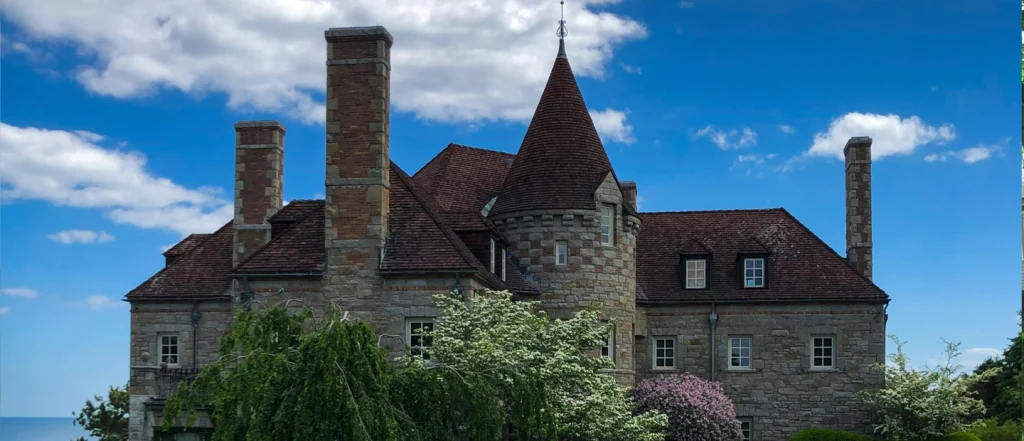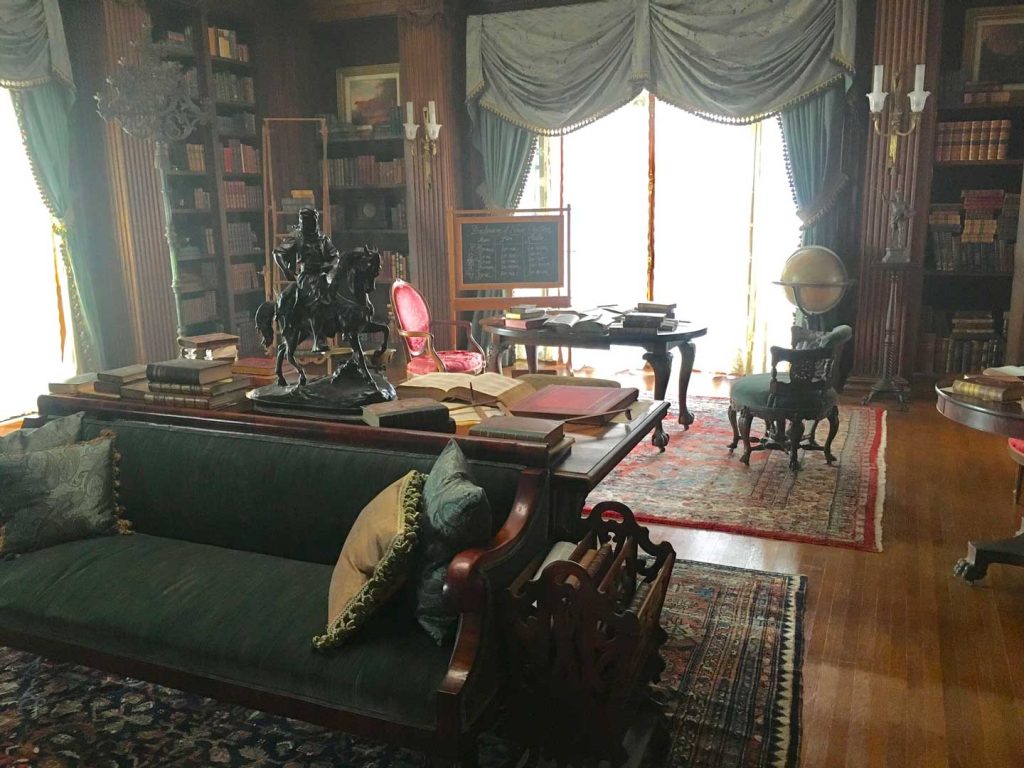Jackson Homestead and Museum
This 1809 Federal-style home once sheltered freedom seekers on the Underground Railroad and now hosts interactive exhibits on Newton’s social history. A visit lets you handle primary sources and step into period rooms that make the city’s abolitionist past feel immediate.
Phone: (617) 796-1450
Durant-Kenrick House and Grounds
Three centuries of family stories come alive in this restored 1734 farmhouse where hands-on displays connect colonial life, Revolutionary politics, and 19th-century horticulture. Outdoor heritage gardens and a sleek glass entry wing make it a favorite for preservation-minded architects.
Phone: (617) 641-9142
Longyear Museum
This light-filled museum explores the life of Mary Baker Eddy and early Christian Science through rare artifacts, multimedia exhibits, and beautifully curated gardens on the Chestnut Hill estate. Researchers love the quiet reading room overlooking Boston College.
Phone: (617) 278-9000
Mary Baker Eddy Historic House (Dupee Estate)
Tour the Ruskinian Gothic mansion where religious leader Mary Baker Eddy spent her final years; intricate stonework, stained glass, and restored interiors showcase Peabody & Stearns architecture at its finest. Docents highlight the painstaking preservation that earned statewide awards.
Phone: (617) 278-9000
Newton Free Library
With soaring skylit atriums, maker spaces, and a 450,000-item collection, the city’s “living room” circulates more material per capita than any library in Massachusetts and hosts daily events for all ages. Architects admire its neo-Georgian brickwork and dramatic 50-foot glass core.
Phone: (617) 796-1360
Newton City Hall & War Memorial
Set on landscaped grounds with a reflecting pond, this 1932 Art Deco-influenced civic complex features WPA murals, bronze honor rolls, and marble galleries ideal for design inspiration and public-space precedent studies.
Phone: (617) 796-1000
Newton Cemetery & Arboretum
Strolling tree-lined lanes, Victorian monuments, and a certified Level III arboretum make this 1855 garden cemetery a peaceful case study in green-infrastructure stewardship and historic landscape design.
Phone: (617) 332-0047
Echo Bridge
This 1876 granite and brick aqueduct arch spans the Charles River with astonishing acoustics—shout beneath it and hear a 15-second reverberation. Engineers marvel at the 450-foot span built without modern machinery.
Phone: (617) 796-1500
Hemlock Gorge Reservation
Old-growth hemlocks shade trails along river rapids, stone abutments, and the foot of Echo Bridge—an invaluable model of riparian restoration within a dense suburb.
Phone: (617) 796-1500
Crystal Lake
A spring-fed kettle lake offering summertime swimming, paddle boarding, and sunset walks along historic Victorian cottages—perfect for studying shoreline stabilization done right.
Phone: (617) 796-1500
Hammond Pond Reservation
Granite ledges popular with climbers rise above a glacial pond circled by boardwalks that connect to The Street Chestnut Hill retail district—an instructive blend of ecology and commerce.
Webster Woods (Conservation Area)
Newton’s largest forest offers drumlin ridges, vernal pools, and remnants of Cardinal Cushing’s retreat; its 2020 acquisition is a case study in municipal land protection.
Phone: (617) 796-1500
Cold Spring Park
A 1.5-mile wooded loop, community gardens, and wetlands boardwalk make this 100-acre park ideal for birding and passive recreation amid restored pollinator meadows.
Phone: (617) 796-1500
Nahanton Park
Riverfront meadows, a canoe launch, and community gardens draw naturalists and paddlers; the Friends group documents 220+ bird species along these restored floodplains.
Phone: (617) 796-1500
Bullough’s Pond
This tranquil mill pond—skatable in winter—offers postcard reflections of Victorian homes and provides a living laboratory for storm-water management and urban wildlife.
Phone: (617) 796-1500
Auburndale Park & Conservation Area
Old stone walls, carriage roads, and wetlands restoration projects fill this 32-acre estate once owned by landscape architect Frederick Law Olmsted’s protégés.
Edmands Park
Quiet hemlock groves and brook crossings make this 33-acre woodland a favorite for trail runners studying low-impact boardwalk construction on steep terrain. :contentReference[oaicite:30]{index=30}
Blue Heron Trail
Raised boardwalks skim wetlands frequented by great blue herons and river otters—an exemplary project where conservation NGOs partnered with local engineers.
William H. Peirce House
This 1873 Second Empire residence showcases mansard roofs, ornate iron cresting, and original clapboard—ideal for contractors studying historic envelope repair.
Newton Highlands Historic District
Walk Victorian storefronts, shingle-style homes, and the 1906 MBTA depot to see transit-oriented development before it was trendy.
Newton Upper Falls Historic District
Greek Revival mill housing, granite lintels, and the 1850 St. Mary’s Church line these narrow lanes—prime material for adaptive-reuse case studies.
Chestnut Hill Historic District
Brick collegiate Gothic halls, stone coach houses, and Olmsted-designed landscapes span Boston College and adjoining estates—showing how campus growth respects historic fabric.
Norumbega Park Conservation Area
Once an amusement park with a famous swing-era ballroom, today’s 27-acre preserve features oxbow wetlands and interpretive signs on its colorful past.
Purgatory Cove
Launch a canoe into this quiet Charles River inlet framed by red-maple swamp and watch great egrets hunt at dusk—an urban wildlife haven minutes from Route 128.
Cochituate Aqueduct Trail (Newton Segment)
Walk atop the 1848 brick water conduit that once supplied Boston; granite gatehouses, cast-iron vents, and a linear greenway illustrate 19th-century infrastructure engineering.
Hammond Pond Parkway Scenic Overlook
A roadside pullover on this Olmsted Brothers-designed parkway frames classic views of kettle ponds, granite cliffs, and migrating waterfowl—an easy detour for landscape photographers.
Also Read:






